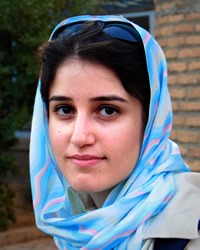Persian in Japan

Photo Source:
Hamed Saber - Flickr
Creative Commons
|
Send Joshua Project a map of this people group.
|
| People Name: | Persian |
| Country: | Japan |
| 10/40 Window: | Yes |
| Population: | 14,000 |
| World Population: | 48,380,900 |
| Primary Language: | Persian, Iranian |
| Primary Religion: | Islam |
| Christian Adherents: | 0.50 % |
| Evangelicals: | 0.20 % |
| Scripture: | Complete Bible |
| Ministry Resources: | Yes |
| Jesus Film: | Yes |
| Audio Recordings: | Yes |
| People Cluster: | Persian |
| Affinity Bloc: | Persian-Median |
| Progress Level: |
|
Introduction / History
By definition, Persians (also known as Iranians) are an ethnic group native to Iran. The Persian language, called Farsi, is part of the Indo-Iranian language family, and is the official language of Iran. Dari, the language of the elite in Afghanistan, is a dialect of modern Farsi. Around 1000 B. C. , Persian groups began to settle in the territory that is now Iran. Loosely associated Persian tribes became a more cohesive political unit under the Achaemenian dynasty. Their unity soon made them the dominant ethnic group in the region. For 1,200 years, Persia maintained a culture that became increasingly more complex and rigid. This laid the foundation for a successful Arabian conquest of Persia in the seventh century AD. It was not until the Islamic revolution of 1979 that massive changes came both to Iran and to the Persian people. Although most Persians now live either in Iran or in one of the nearby Central Asian or Middle Eastern countries like Bahrain, small Persian diaspora communities also live in many other nations around the world, especially in the West. There are some who live in Japan as well, though their numbers are small. Most Persians in Japan live in Greater Tokyo. There were Persians and Japanese who interacted since ancient times, but very little migration between the two until modern times.
What Are Their Lives Like?
At the end of the Iran-Iraq War in the 1980s, the Iranian economy was devastated, and young men from Iran were looking for work outside their country. There was a boom in Japan's economy, and they needed cheap labor. Governments for both countries aided Persian Iranians for getting permits and travel needs. These were mostly young, single men from the lower classes who had either a military or a criminal background. Sometimes Japanese employers would wait until the man's three-month work permit was about to expire so they could hire them for less money since they would then be there illegally. Today a high percentage of the Persians in Japan are there illegally, and these people are easily hired to sell drugs or cell phones by the Japanese yakuza, a criminal network. Other Persians in Japan are much more fortunate. Some Persians have their own academic society that uses both the Japanese and Farsi languages. They are the Academic Society for Iranians in Japan. It includes both students and researchers.
What Are Their Beliefs?
Prior to the Arab invasions, the Persian religion was Zoroastrianism. This religion taught that there was an eternal struggle between the forces of good and evil. Shia Islam became the national religion of Iran in the sixteenth century, at which time the ulama (clergy) began playing an important role in both the social and political lives of the people. Today, most Persians are Shia Muslims of the Ithna Ashari branch, and are radical in their adherence to Islamic laws and principles. Thanks to the excess of the Iranian government, a high percentage of Persians are secularized and tired of forced religion. The Lord is growing his Church in Iran, and many have come to faith in recent years. Unfortunately, this is not affecting Persians in Japan.
What Are Their Needs?
Persians need their spiritual eyes will be opened. Some are staunch Shia Muslims while others are secularized. They need believers to take the glory of Christ to them.
Prayer Points
Pray for Persian believers from Iran to take Christ to Persians in other countries including Japan. Pray for a spiritual hunger among the Persian diaspora that will result in a movement to Christ in Japan. Pray for the Lord to show himself powerful and loving to the Persians in Japan.